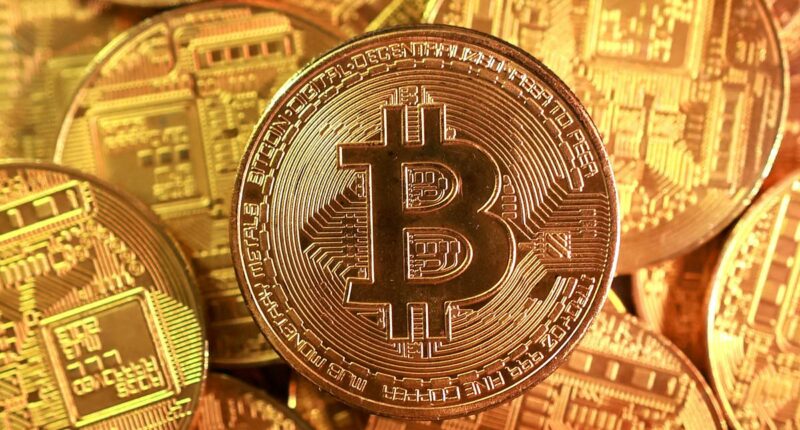Share this @internewscast.com
The political landscape in France is experiencing its own series of upheavals, reminiscent of the turbulence during Liz Truss’s tenure in the UK.
Meanwhile, a political deadlock in Washington over the debt ceiling has led to a government shutdown, creating economic ripple effects that are unsettling many of the G7’s wealthiest nations.
In the realm of technology, the unpredictable landscape of artificial intelligence continues to evolve in unexpected ways.
In a notable development, tech behemoth AMD has struck a significant chip supply agreement with OpenAI, which now has the option to procure up to 10 percent of AMD’s chips. The implications of this deal on Nvidia’s $100 billion valuation remain uncertain.
These transactions, involving billions of dollars, underscore the vast sums being funneled into AI—a sector often characterized by speculative investments.
Cautious investors have valid reasons to be apprehensive. They should be aware that the recent rapid growth seen in American 401(k) retirement plans and UK equity ISAs may not be sustainable at the same pace.

Digital gold: Bitcoin and other crypto currencies are on a tear with the former climbing above $125,000 in recent trades
More opportunistic traders and managers are dipping into alternate assets.
Gold has shot up to over $3,950 an ounce, making a mockery of efforts by governments to de-monetise bullion. Bitcoin and other crypto currencies are on a tear with the former climbing above $125,000 in recent trades.
Richard Nixon cancelled the convertibility of gold into dollars way back in 1971. Unlike Gordon Brown, who started to sell the UK reserves in 1999, the US hung onto its holdings.
Fort Knox and the IMF’s own holdings of gold have proved a fantastic store of value. Indian and Chinese central banks cannot get enough of the stuff.
Retail investors and alternative funds find it hard not to be attracted by the surge in bitcoin and other crypto currencies.
A proliferation of exchange traded funds in the US has given crypto an air of respectability. Bitcoin lives on free air, and ‘mining’, the creation of new coinage, is a puzzle.
Bitcoin has proved a haven for financial skulduggery as the recent conviction at the Crown Court in London of Zhimin Qian for a £5billion crypto scam demonstrated.
The implosion at FTX and Sam Bankman-Fried’s conviction two years ago should have been enough to cool bitcoin enthusiasm.
The commissions charged by crypto brokers, up to six times higher than those trading conventional assets, is both profiteering and a signal not to engage.
Both asset classes signal dissonance with other assets over political risk and doubts about feasibility of multi-billion-dollar AI deals. Given a choice between gold and bitcoin, only bullion offers security.
Shawbrook return
New arrivals on the London Stock Exchange are welcome after a barren period. So the choice of private equity owners BC Partners and Pollen Street Capital to float Shawbrook in the City will be appreciated.
Before anyone becomes over-excited, it is worth putting this estimated £2billion return to public markets into some context.
Unlike other UK fintech start-ups, Shawbrook is wholly UK-based. It would have been bizarre to go elsewhere.
The return of a bank which has been in the hands of private equity where it has been tricky to look under the hood, demands caution.
A loan book of £37billion has been built by offering credit to mid-sized borrowers who have found it difficult to access funds via High Street lenders and needs scrutiny. It was bolstered by access to the RBS state aid scheme.
In Shawbrook’s case, that squared a circle as the bank grew out of RBS. The bank has been in the hands of private equity for eight years and there must be relief that it is finally to get a currency for future acquisitions and growth.
Anything which deepens the UK’s fintech presence is to be welcome. But be cautious of private equity bearing gifts.
Growth tax
The latest speculation is that Rachel Reeves will opt for a bank tax in her budget. Raising the current surcharge of 3 per cent is seen as most likely.
Or the Government could seek to reclaim some of the interest that banks earn on reserves lodged at the Bank of England – which has cost the Government £21billion so far this year. Few people, other than the bankers, would complain.
But the Chancellor should consider that more tax means less lending capacity and a further obstacle to growth.
DIY INVESTING PLATFORMS
AJ Bell

AJ Bell
Easy investing and ready-made portfolios
Hargreaves Lansdown

Hargreaves Lansdown
Free fund dealing and investment ideas
interactive investor

interactive investor
Flat-fee investing from £4.99 per month
InvestEngine

InvestEngine
Account and trading fee-free ETF investing
Trading 212
Trading 212
Free share dealing and no account fee
Affiliate links: If you take out a product This is Money may earn a commission. These deals are chosen by our editorial team, as we think they are worth highlighting. This does not affect our editorial independence.
Compare the best investing account for you








